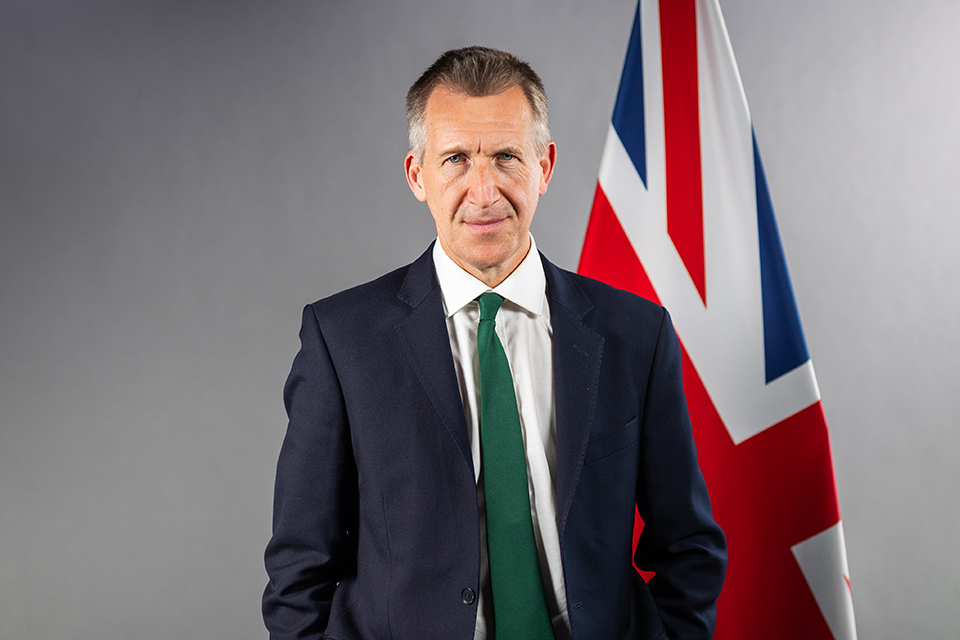- Government launches new investment to support clean energy manufacturing, and highly skilled jobs in industrial towns and cities
- offshore wind developers can now bid for financial support if they drive investment in UK’s most deprived regions, build low carbon factories, or support net zero supply chains
- the bonus will kickstart growth and support good jobs – delivering the mission to become a clean energy superpower through the government’s Plan for Change
Industrial heartlands and coastal areas will receive a major economic boost as the government backs renewable energy firms investing in industrial communities – backing good jobs through the government’s Plan for Change.
The application window has opened for the Clean Industry Bonus, which provides financial support for offshore wind developers, on the condition they prioritise their investment in areas that need it most, including traditional oil and gas communities – supporting highly skilled jobs such as engineers, electricians or welders.
The support also rewards developers who build more sustainable low carbon factories, offshore wind blades, cables and ports to reduce industrial emissions across the clean energy supply chain.
By encouraging developers to use less polluting suppliers, the bonus will help tackle the climate crisis while also addressing supply chain blockages in renewable technologies driven by Russia’s invasion of Ukraine – supporting industry on the transition to clean, secure, homegrown energy that Britain controls.
The UK produces more offshore wind than any other European country, making it the backbone for plans to deliver a clean power system by 2030 and become a clean energy superpower. This bonus will help accelerate the drive for clean power – incentivising developers to build the infrastructure the country needs to end reliance on unstable fossil fuel markets and help keep energy bills down for good.
Since July, the government has seen £34.8 billion of private investment into UK’s clean energy industries. In November, the government launched its carbon capture and storage industry supporting 4,000 jobs in the North West and Teesside. ScottishPower awarded a £1 billion turbine contract for its East Anglia TWO offshore windfarm to Siemens Gamesa, including blade production at its Hull blade factory – the company employ over 1,300 people in Humberside.
Energy Secretary Ed Miliband said:
We are backing our proud manufacturing, coastal and oil and gas communities with good jobs, skills and private sector investment – delivering on the government’s Plan for Change.
This is our clean energy superpower mission in action, kickstarting growth, delivering energy security and transforming towns and cities as part of the transition – from the ports of Nigg and Leith to the manufacturing hubs of Blyth and Hull.
Steve Foxley, Chief Executive of the Offshore Renewable Energy (ORE) Catapult, said:
This news is an important signal from government to industry of intent to grow our offshore wind sector in a way that benefits both our climate and our economy, supporting expansive regional job creation and bolstering national energy security.
Alongside innovating to develop next-generation technologies, delivering the right levels of future deployment and fulfilling the ambitions of the Industrial Growth Plan for offshore wind, it will drive up confidence in our ability to secure the clean investments we need in the years to come.
Dan McGrail, CEO of RenewableUK, said:
The offshore wind industry already employs over 34,000 people in the UK, but there’s an opportunity to treble this number by the end of the decade if we grow the sector’s supply chain. Government initiatives like the Clean Industry Bonus, coupled with industry initiatives to support innovation and the upcoming Industrial Strategy, could drive hundreds of millions of pounds of private investment into new manufacturing.
Whilst we’re right to focus on securing investment in manufacturing new turbine foundations, blades and cables, we shouldn’t forget that there are also thousands of jobs in the construction and maintenance of wind farms too. You can go to places across the country like Grimsby and Great Yarmouth and Buckie on the Moray Firth and see boats full of engineers ensuring our wind farms operate at maximum efficiency.
Dhara Vyas, Energy UK, Chief Executive, said:
Offshore wind is set to become the backbone of a decarbonised power system. To build an industry that is resilient to supply chain challenges, we need a framework that supports sustainable deployment, while fostering investment in the UK’s industrial heartlands.
The Clean Industry Bonus will help to unlock economic growth, create job opportunities, and maintain the UK’s position as a global leader in offshore wind.
Alongside the development of a broader industrial strategy, the Clean Industry Bonus will play an important role in strengthening the Contracts for Difference mechanism. Clarity will be critical in ensuring we can deliver Allocation Round 7, which is likely to be the single most important auction to achieving the Clean Power goal.
The UK is already home to the world’s first floating offshore wind farm and has the highest deployment of offshore wind in Europe. As a result, the UK’s offshore wind industry is supporting thousands of highly skilled jobs across the country.
This latest boost for renewable developers comes after the government delivered the most successful renewables auction round in history last year, securing contracts for Europe’s largest and second largest offshore wind farm projects.
The bonus will come with an initial £27 million per gigawatt of offshore wind projects. That means if developers commit to 7-8 GW of offshore wind, up to £200 million of funding could be made available.
Funding will be allocated competitively with the results announced by the Energy Secretary in the summer.
Notes to editors
The Clean Industry Bonus will apply to all offshore wind projects bidding for funding through this year’s renewable energy auction, Allocation Round 7 of the Contracts for Difference scheme, which is the main mechanism for securing clean energy infrastructure for Britain. September’s auction secured 5 GW for offshore wind, enough to power the equivalent of around 8 million homes.
The funding will come through the government’s Contract for Difference mechanism. The scheme is designed to protect billpayers from high costs with the lowest price bids successful, ensuring value for money.






